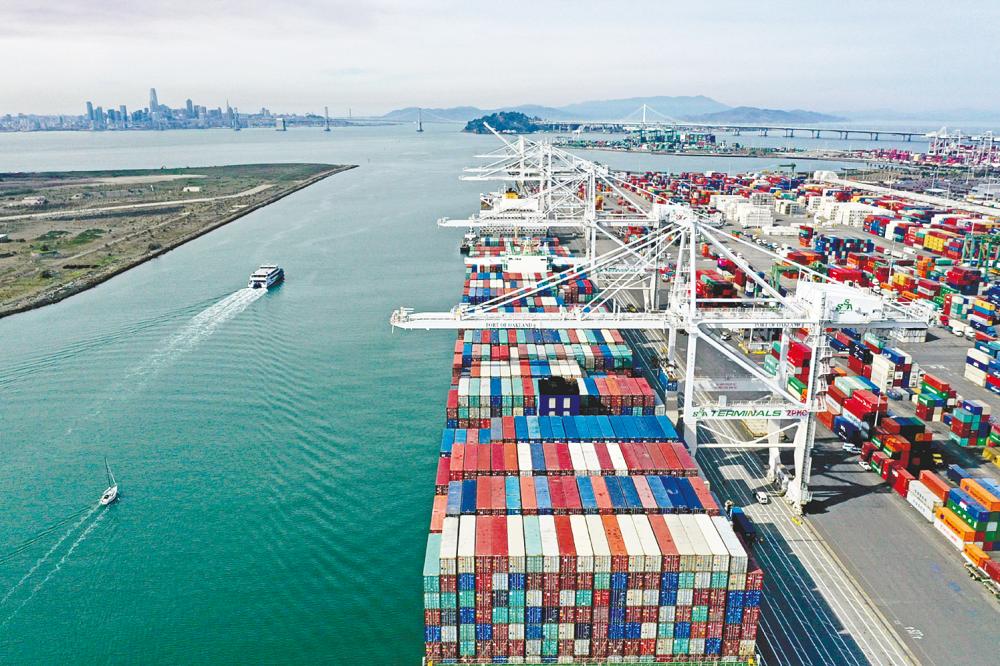PETALING JAYA: Malaysia’s exports grew 4.3% year on year (yoy) to RM84.4 billion in November, signifying a better external trade outlook for 2021 amid an expected recovery in global demand.
November’s export growth was driven by re-exports, which widened by 18.1% to RM15.4 billion in value, accounting for 18.2% of total exports. Domestic exports grew 1.7% yoy to RM69.1 billion, while imports declined 9% to RM67.6 billion.
Chief Statistician Malaysia Dr Mohd Uzir Mahidin noted that this marks the nine consecutive month of decrease in imports since March this year.
“Significant decrease in imports has resulted in a higher trade surplus of RM16.8 billion, surged by 151.6% yoy,” he said in a statement today.
The expansion in exports was supported mainly by higher exports to the United States (increase of RM1.9 billion), Singapore (RM1.8 billion), China (RM1.7 billion), Hong Kong (RM1.3 billion) and the European Union (RM457.4 million). The main goods which contributed to the increase in exports were electrical and electronic products (RM6.5 billion); rubber products (RM2.9 billion) and palm oil-based agriculture products (RM433.6 million).
Decreases in imports were mainly from Singapore (RM2.2 billion), the European Union (RM1.1 billion), the United Arab Emirates (RM846.3 million), China (RM738.7 million) and the US (RM705.2 million). Decreases in imports were noted for petroleum products (RM4.1 billion); transport equipment (RM1.1 billion); manufacture of metal (RM629.7 million); machinery, equipment and parts (RM563.1 million) and crude petroleum (RM499.8 million).
UOB Research noted that although the third wave of infections and the resulting movement restriction orders are expected to impede the domestic economic recovery in fourth-quarter 2020, the positive performance by the external sector in October-November provides some buffer.
It noted that the export contraction of -2.6% in January-November suggests the full-year export projection will come in at -2.4%, which is better than the research house’s earlier forecast of -3.5%.
“This momentum is expected to persist into 2021 with exports projected to rise by 4.0%, amid an expected recovery in global demand. A sharp cyclical rebound in China’s economic growth, alongside moderate recoveries across Asia and other developed countries, will help support the projected recovery in global demand next year,” said UOB Research in a report.
BIMB Securities Research cautioned that the level of uncertainty surrounding the pandemic continues to cloud global trade prospects even at this juncture. It has observed signs indicating that export levels are picking up even though a mixed bag of leading indicators suggests a bumpy export outlook in the coming months for Malaysia.
“Malaysia’s manufacturing PMI dipped fractionally for a fifth month in a row, down from 48.5 in October to 48.4 in November. With uncertainty over global economic recovery still high and WHO cautioning that the vaccine scheme may risk failure, we firmly expect risks to export growth to be firmly tilted to the downside,” said BIMB.
It pointed out that although exports of manufacturing goods had improved and contributions from electric & electronics exports remained strong, commodities, the other dominant export category, was a mixed bag. Palm oil exports posted strong growth but the mining continued to reel under weak global demand and prices.
For 2021, the research house said global trade is expected to recover with a return to normalcy in global supply chains amid receding challenges from the Covid-19 pandemic. This will be aided by a revival in global demand for manufacturing and commodities driven by expected economic recoveries in the advanced economies, following mass inoculations.
It highlighted that spare capacity and competitive commodities prices will be the added impetus that will support the turnaround in export-oriented industries. Demand for both sectors will also be boosted by massive fiscal and monetary measures to boost consumer spending,
Global trade is expected to recover with a return to normalcy in global supply chains amid receding challenges from the Covid-19 pandemic. – AFPPIX














